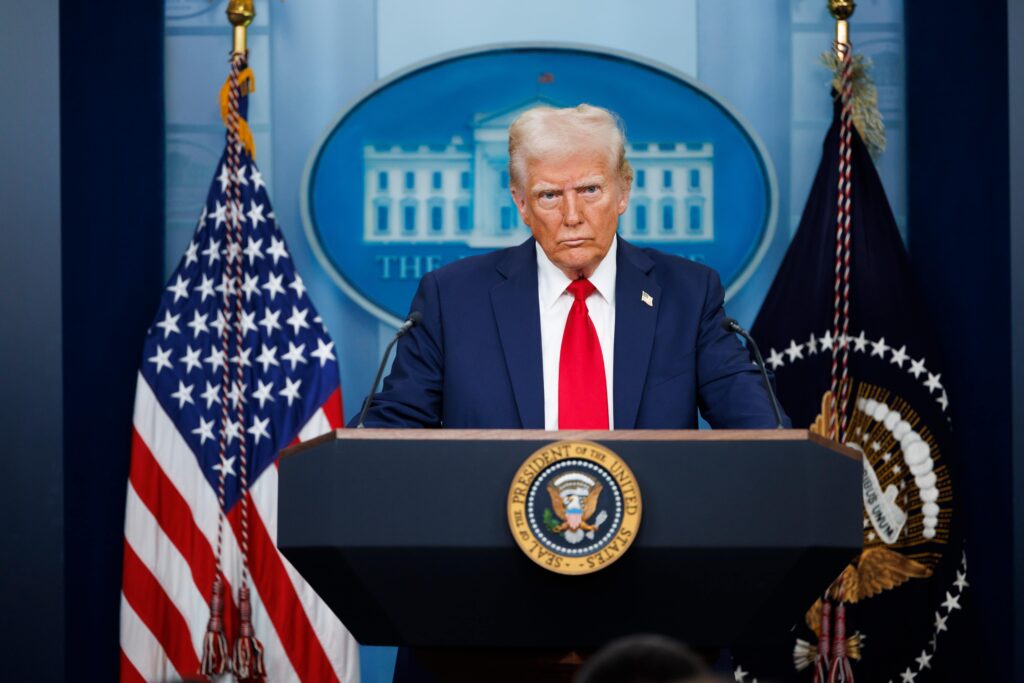Donald Trump has once again warned of a 100% tariff on all films produced outside the United States. He said foreign nations had “stolen” America’s movie industry.
California faces the biggest impact
On Monday, Trump said California suffered most under the current system. He claimed the tariff would “solve this long time, never ending problem”. In May, he had already announced plans to meet Hollywood executives. At that time, he warned the US film industry was dying “a very fast death”.
Tariffs affecting other industries
Trump’s remarks followed new tariffs in other sectors. These include a 100% levy on branded or patented drug imports and 50% tariffs on kitchen and bathroom cabinets. On Truth Social, he said America’s movie business had been taken “like stealing candy from a baby”. He also described California’s governor as “weak and incompetent”.
Uncertainty over implementation
Trump promised the 100% tariff on “any and all movies made outside of the United States”. He did not specify when it would take effect. The White House has not commented. It remains unclear whether streaming platforms like Netflix would be included. No details have been given on how the levy would be calculated.
Canada voices alarm
The Canadian Chamber of Commerce said it was “deeply concerned” about the plan. It highlighted that US studios rely heavily on Canadian crews, talent, and facilities. Catherine Fortin-LeFaivre, senior vice president for international policy, warned the tariffs would punish American studios. She said the move would raise costs, deter investment, and harm both economies. She added it could threaten thousands of middle-class jobs.
Analysts question practicality
Dan Coatsworth, investment analyst at AJ Bell, said the tariff would be difficult to enforce. He explained tariffs usually target goods, not creative projects. He noted filmmakers often choose foreign locations for better tax incentives. He said the plan “raises more questions than it does answers”. Coatsworth added that defining an American-made film would be complicated if actors, funding, or directors were foreign. He warned higher costs could reduce demand for cinemas and streaming services. Still, investors seemed largely unconcerned, and Netflix and Disney shares quickly recovered after a brief dip.
More films produced abroad
Recent US productions including Deadpool & Wolverine, Wicked, and Gladiator II were filmed overseas. Research firm ProdPro confirmed that the US remains a leading hub for global production. Spending totaled $14.54 billion last year, down 26% from 2022. Meanwhile, countries including Australia, New Zealand, Canada, and the UK have seen growing investment.
Britain monitors developments
Officials in London said they are awaiting clarity on how the US tariff could affect British studios. A Department for Business & Trade spokesperson said the UK film industry supports millions of jobs and generates billions for the economy.
Trump expands trade measures
Trump also announced tariffs on wood and furniture on Monday. He set a 10% levy on softwood timber and lumber and 25% tariffs on kitchen cabinets, vanities, and upholstered wooden furniture. Earlier, he previewed the plan on Truth Social. He promised “substantial tariffs on any country that does not make its furniture in the United States”. A presidential proclamation confirmed the tariffs will begin on 14 October. Some levies will rise further next year if trade agreements are not reached. These measures follow Trump’s earlier pledge of 100% tariffs on branded or patented drug imports unless companies build factories in the US.


